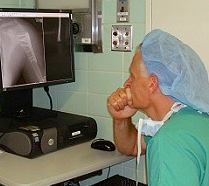This article is a compilation of several sources, referenced at the end.
750 million users of Facebook, 100 million users of Google plus and an additional users of Twitter, Myspace and Pinterest produces and enormous amount of data. How much of it is useful? That depends upon who wants to know.
The same can be said for Health Information Systems. A conundrum is developing and will become an overriding issue as the Health Information Exchanges, regionally and nationally become operational. There are substantial barriers financially and some reticence on the part of hospitals to invest. The initial construction will be heavily subsidezed by HITECH and ARRA. When these grants expire the exchanges must be self supporting. When and if completed HIX will gather enormous amounts of information. Will it gather dust unused? That will depend upon a second and even third generation of software.
It comes in “torrents” and “floods” and threatens to “engulf” everything that stands in its path. The sheer size of the pile (measured in petabytes, one million gigabytes, or even exabytes, one billion gigabytes) combined with its complexity has threatened to overwhelm just about everybody, including the scientists who specialize in wrangling it.
“It’s easier to collect data,” said Michael Franklin, a professor of computer science at the University of California, Berkeley, “and harder to make sense of it.”
Making sense of Big Data is, in fact, a holy grail of computer science these days — and technology companies, academic institutions and the federal government are investing heavily in the endeavor.
And with Google, Facebook, Twitter and many other leading data-heavy technology companies based in the Bay Area, many locals are on the cutting edge of Big Data research.
Last month, the National Science Foundation awarded $10 million to Berkeley’s A.M.P. Expedition, which stands for “algorithms machines people,” a team of Cal professors and graduate students who take an interdisciplinary approach in their drive to advance Big Data analysis.
The Berkeley group was founded in early 2011 and includes Google, SAP and Oracle as sponsors.
The grant is part of the Obama administration’s “Big Data Research and Development Initiative,” which will distribute $200 million. One of the more innovative aspects of the Berkeley group is its emphasis on the people part of dealing with Big Data.
Meanwhile, for every minute that it took you to read this article, 48 hours of video were uploaded to YouTube. According to the site, an overwhelming amount of material — about eight years of content — are added every day by users.
Big Data will play a role in ACOs, and Medicare’s budding plan to incentivize or penalize outcomes. Individual providers will be judged in the context of their “beneficiary community” and local providers.








